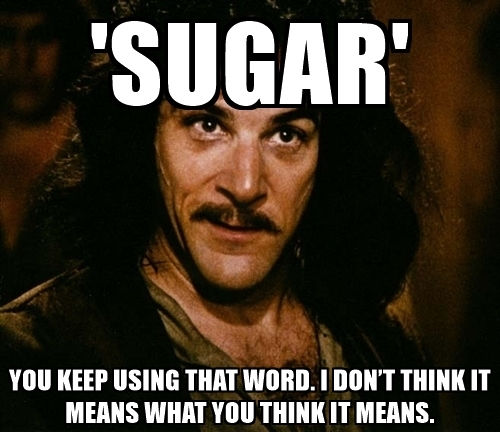Some Truth About Sugar
- Darcy Broadbent

- Jul 7, 2022
- 2 min read

Is sugar really bad for you?
Well, the short answer is no. Your table sugar (actually called sucrose) is made up of a glucose molecule and a fructose molecule. When you eat sucrose from any source (from fruits, veggies or added sugar) the body breaks it down into its glucose and fructose components---the fructose is further broken down to glucose and glucose is the preferred energy source for the body.
So no, sugar doesn't do any harm to your body. It's natural and that's that.
But here's the thing...sugars, such as syrups and table sugar, are added to foods and drinks to increase their sweetness. However, added sugars typically do not provide additional nutrients. This means that foods with substantial amounts of ADDED sugar often have lower nutrient content and high-energy density---i.e. lots of calories. So while sugar isn't bad for you...additional sugar added to food needlessly contributes to excess calorie consumption which leads to weight gain. It is the weight gain and excess calories that can cause health detriments, not the sugar.
Table sugar is the exact same sugar that is found in fruits and veggies---Yes...veggies have the same sugar as table sugar.
There is no difference. There is a need to include fruits and veggies while limiting foods in which sugar has been added in processing. Not that added sugar causes inflammation, heart disease or any other boogeyman the media would have you believe but that added sugar adds to the calories of food while providing NO nutrient value.
One final note on fructose. There has been a lot of talk about fructose being bad and hey, I did mention that sucrose is made up of fructose right? Fructose is processed a little differently than glucose and some of the fructose is stored as fat in the liver. Some will have you believe that this leads to fatty liver disease. But let's look at what's really going on here?
Non-alcoholic fatty liver disease (NAFLD), a condition of greater significance in inactive people who consume large amounts of fructose (and overall energy) in their diet However, the level of fructose required to cause issues with the liver, including fat deposition is very high. Fructose intakes need to be consumed in quantities over 100 grams a day for there to be any measurable detriment to human health. The average North American with their high calorie, high fat diets consumes roughly 55 grams of fructose per day, so just under half of what is considered to be a problem. So, all the data points toward excess energy intake, not fructose per se, are the leading cause of NAFLD.
(Nerdy Side Note: Milk has sugar too but it isn't sucrose, it's Lactose which is made up of 1 glucose molecule and 1 galactose molecule)






Comments